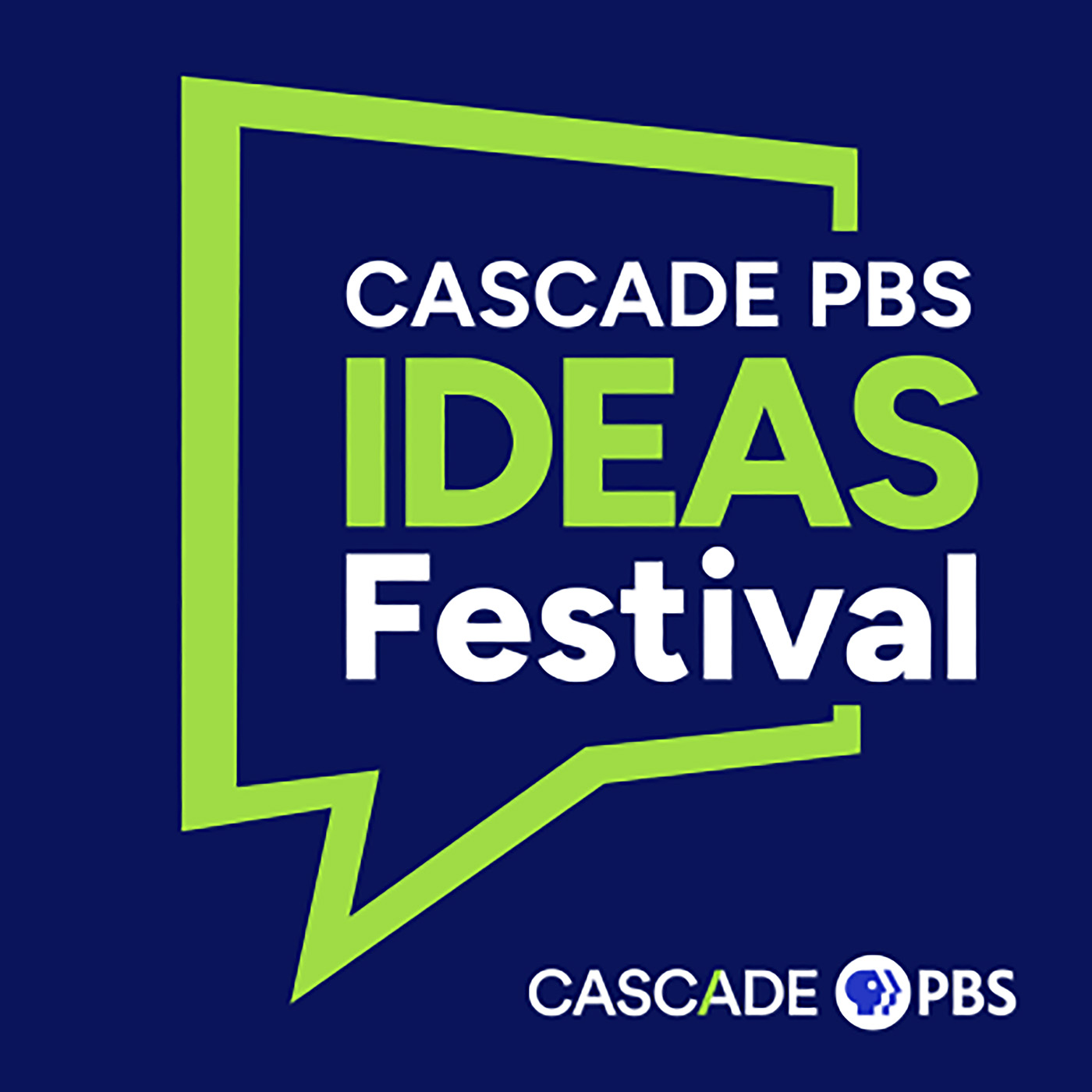Episodes
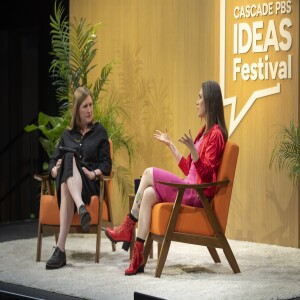
5 days ago
5 days ago
In a live taping of the Criminal podcast, host Phoebe Judge speaks with Knox about her new memoir and how a murder accusation redefined her life.
Amanda Knox became a household name when she was convicted, in 2009, of the murder of her roommate while studying abroad in Perugia, Italy. She spent four years in an Italian prison before being exonerated.
As part of the Cascade PBS Ideas Festival in late May, Knox sat down with Criminal podcast host Phoebe Judge to discuss her new memoir, Free: My Search for Meaning. The memoir moves beyond Knox’s story of conviction and acquittal to explore what it’s been like to live under the shadow of the world’s image of her.
In this episode of the Cascade PBS Ideas Festival podcast, Judge and Knox discuss Knox’s experience of being relentlessly interrogated as Italian prosecutors, global tabloids and even her community back in the U.S. sought to define the narrative around her story. Knox also shares what she plans to tell her children about these experiences and her unlikely relationship with the man who prosecuted her case.
This conversation was recorded on May 31, 2025.
---
Credits
Host: Paris Jackson
Producer: Sara Bernard, Scot Michael
Event producers: Jake Newman, Anne O'Dowd
---
If you would like to support Cascade PBS, go to cascadepbs.org. In addition to supporting our events and our daily journalism, members receive complete access to the on-demand programming of Cascade PBS.
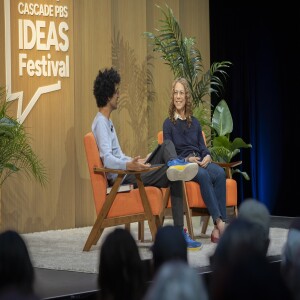
Monday Jul 14, 2025
Harvard historian discusses brainwashing in the digital age
Monday Jul 14, 2025
Monday Jul 14, 2025
In a live taping of Radiolab, co-host Latif Nasser and guest Rebecca Lemov discuss prominent examples of indoctrination and their modern implications.
As part of the Cascade PBS Ideas Festival in late May, Latif Nasser, co-host of WNYC’s Radiolab, sat down with Harvard historian Rebecca Lemov to dig into her new book, The Instability of Truth: Brainwashing, Mind Control, and Hyper-Persuasion.
The book chronicles the fascinating and traumatic history of brainwashing – how the term originated, its chilling permutations over the decades and what it could mean now in an age of artificial intelligence.
In this episode of the Cascade PBS Ideas Festival podcast, Nasser and Lemov discuss the origin story of the term, following the experiences of American POWs during the Korean War. They then delve into the remarkable story of the heiress Patricia Hearst, who survived kidnapping and violence by adopting the perspectives of her captors. Finally, they discuss the “mass emotional contagion” of social media events and the AI chatbots with whom many people have formed very real relationships.
This conversation was recorded on May 31, 2025.
---
Credits
Host: Paris Jackson
Producer: Sara Bernard, Scot Michael
Event producers: Jake Newman, Anne O'Dowd
---
If you would like to support Cascade PBS, go to cascadepbs.org. In addition to supporting our events and our daily journalism, members receive complete access to the on-demand programming of Cascade PBS.

Monday Jul 07, 2025
Jake Tapper and Alex Thompson defend claims on Biden’s decline
Monday Jul 07, 2025
Monday Jul 07, 2025
In a live taping of ‘The Gist’ podcast, the authors of “Original Sin” — a book questioning the former president’s health — share their findings.
One book has been stirring up a lot of political controversy this spring: Jake Tapper and Alex Thompson’s deep dive into President Biden’s health during his last year in office.
As part of the Cascade PBS Ideas Festival in May, Tapper and Thompson got on stage with Mike Pesca, host of The Gist podcast, to dig into the reporting behind Original Sin: President Biden’s Decline, Its Cover-up, and His Disastrous Choice to Run Again.
In this episode of the Cascade PBS Ideas Festival podcast, Tapper and Thompson detail how, according to their reporting, an ever-tightening inner circle worked to conceal Biden’s sparse schedule, failing memory and other signs of serious decline. Tapper describes an atmosphere of unquestioning loyalty, not unlike that of the current Trump White House, that supported Biden’s decision to run for a second term. Thompson and Tapper also get into the politically polarized feedback on the book, which has, at least from the far left and far right, been “ferocious.”
This conversation was recorded on May 31, 2025.
---
Credits
Host: Paris Jackson
Producer: Sara Bernard, Scot Michael
Event producers: Jake Newman, Anne O'Dowd
---
If you would like to support Cascade PBS, go to cascadepbs.org. In addition to supporting our events and our daily journalism, members receive complete access to the on-demand programming of Cascade PBS.
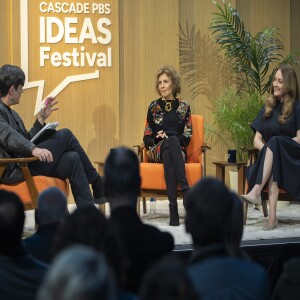
Monday Jun 30, 2025
Six months in, how has Trump’s second term impacted free speech?
Monday Jun 30, 2025
Monday Jun 30, 2025
In a live taping of the ‘Open to Debate’ podcast, commentator Brandi Kruse and legal scholar Nadine Strossen examine the state of the First Amendment.
From funding cuts at universities to restrictions on the press, critics of Trump 2.0 point to a long list of potential threats to the freedom of speech. But in these polarized times, perception is everything.
As part of the Cascade PBS Ideas Festival in late May, Nick Gillespie, editor-at-large of Reason Magazine and guest moderator of Open to Debate, sat down with political commentator Brandi Kruse and legal scholar and civil liberties advocate Nadine Strossen to dig into the evolving boundaries of free speech in 2025.
In this episode of the Cascade PBS Ideas Festival podcast, Strossen and Kruse take a deep dive into a range of thorny topics, including the Trump administration’s actions against Harvard University; early executive orders banning DEI policies; hypocrisy, bias and objectivity in the media; and how far this or any administration should be allowed to go.
This conversation was recorded on May 31, 2025.
---
Credits
Host: Paris Jackson
Producer: Sara Bernard, Scot Michael
Event producers: Jake Newman, Anne O'Dowd
---
If you would like to support Cascade PBS, go to cascadepbs.org. In addition to supporting our events and our daily journalism, members receive complete access to the on-demand programming of Cascade PBS.
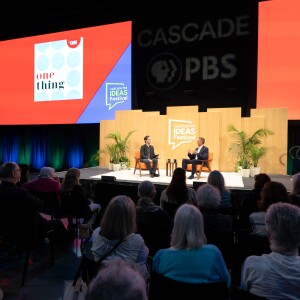
Monday Jun 23, 2025
Former U.S. Sen. Jeff Flake on the Past & Future of GOP Politics
Monday Jun 23, 2025
Monday Jun 23, 2025
In a live taping of CNN's One Thing, Flake speaks with host David Rind about a post-Trump era and his hopes for a party of governance, not grievance.
Former U.S. Senator Jeff Flake (R – Arizona) is perhaps best known for his early and vocal criticism of President Donald Trump. In 2017, Flake announced he would not run for reelection, largely because he saw no room for a moderate, anti-Trump Republican in Congress.
As part of the Cascade PBS Ideas Festival in late May, Flake took the stage with David Rind, host of CNN’s One Thing podcast, to dig into how Flake feels about that decision today and what it all means during a second Trump administration.
In this episode of the Cascade PBS Ideas Festival podcast, Rind and Flake discuss the anger and grievance that dominates American politics; Flake’s role as ambassador to Turkey during the Biden administration; how American diplomacy has been impacted by Trump 2.0; and what a future Republican party could look like.
This conversation was recorded on May 31, 2025.
---
Credits
Host: Paris Jackson
Producer: Sara Bernard, Scot Michael
Event producers: Jake Newman, Anne O'Dowd
---
If you would like to support Cascade PBS, go to cascadepbs.org. In addition to supporting our events and our daily journalism, members receive complete access to the on-demand programming of Cascade PBS.
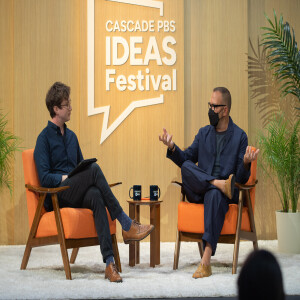
Monday Jun 16, 2025
Why Tech Platforms Have Gotten Worse – and What to Do About It
Monday Jun 16, 2025
Monday Jun 16, 2025
In a live taping of WNYC’s On the Media, author and activist Cory Doctorow argues that tech giants have chased profits at the expense of users.
There’s no question that the products that giant companies such as Amazon, Google and Meta have developed now dominate many people’s lives. The road to that domination, argues author and activist Cory Doctorow, is paved with profit-driven actions that ultimately invade privacy, drive up prices and worsen the user experience.
As part of the Cascade PBS Ideas Festival in late May, Doctorow took the stage with Micah Loewinger, co-host of WNYC’s On the Media, to unpack this theory from his forthcoming book, Ensh–ttification: Why Everything Suddenly Got Worse and What to Do About It.
In this episode of the Cascade PBS Ideas Festival podcast, Loewinger and Doctorow discuss the ways that Amazon, Uber and other companies started by offering good deals to end users and business partners, but ultimately became “too big to care” as they drove out competitors and chased profits. Loewinger and Doctorow also dig into ways to combat these trends, such as the historic antitrust cases proceeding against Google and Apple in federal court, or how new tariffs could potentially promote a freer internet.
This conversation was recorded on May 31, 2025.
---
Credits
Host: Paris Jackson
Producer: Sara Bernard
Event producers: Jake Newman, Anne O'Dowd
---
If you would like to support Cascade PBS, go to cascadepbs.org. In addition to supporting our events and our daily journalism, members receive complete access to the on-demand programming of Cascade PBS.
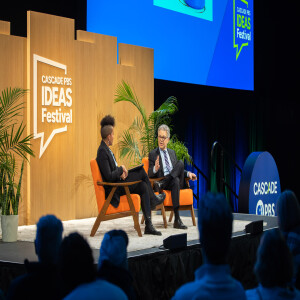
Monday Jun 09, 2025
Al Franken on Trump 2.0, Comedy and What’s Next for Democrats
Monday Jun 09, 2025
Monday Jun 09, 2025
Author, comedian and former U.S. Senator Al Franken has a unique resume. One of the original writers on Saturday Night Live, he won five Emmys, wrote several comedic books on politics and represented Minnesota as a U.S. Senator from 2009 to 2018.
As part of the Cascade PBS Ideas Festival in late May, Franken sat down with Jane Coaston, host of Crooked Media’s What a Day, to discuss his journey from comedy and television to the Senate and beyond.
In this episode of the Cascade PBS Ideas Festival podcast, Franken and Coaston dig into Franken’s Minnesota roots and unusual career; his thoughts on the second Trump administration; the goals of his political action committee, Midwest Values PAC; and what he thinks Democrats should be talking about right now.
This conversation was recorded on May 31, 2025.
---
Credits
Host: Paris Jackson
Producer: Sara Bernard
Event producers: Jake Newman, Anne O'Dowd
---
If you would like to support Cascade PBS, go to cascadepbs.org. In addition to supporting our events and our daily journalism, members receive complete access to the on-demand programming of Cascade PBS.
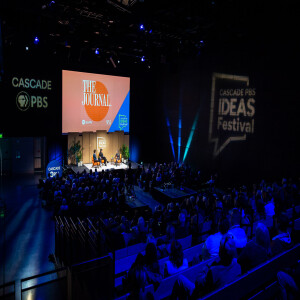
Monday Jun 02, 2025
Missed the Cascade PBS Ideas Festival? Listen here
Monday Jun 02, 2025
Monday Jun 02, 2025
Well, that’s a wrap! The 2025 Cascade PBS Ideas Festival took place in downtown Seattle on May 31. But the event’s thoughtful conversations, lively debates and incisive commentary are all coming soon to your podcast feeds.
To kick off this season of the Cascade PBS Ideas Festival podcast, host Paris Jackson catches up once more with events director Jake Newman to discuss what’s on tap for this year.
We can expect a few returning media partners, including The Journal, but this time host Ryan Knutson takes the stage with travel guru Rick Steves. Plus, Criminal host Phoebe Judge and guest Amanda Knox will talk about life after acquittal; Jake Tapper and Alex Thompson will discuss their headline-grabbing book on President Biden with Mike Pesca from The Gist; and Latif Nasser, host of Radiolab, will join forces with Harvard historian Rebecca Lemov to dig into the history of brainwashing.
All that and much more is on its way. A new episode of the Cascade PBS Ideas Festival podcast airs every Monday beginning June 9.
---
Credits
Host: Paris Jackson
Producer: Sara Bernard
Event producers: Jake Newman, Anne O'Dowd
---
If you would like to support Cascade PBS, go to cascadepbs.org. In addition to supporting our events and our daily journalism, members receive complete access to the on-demand programming of Cascade PBS.
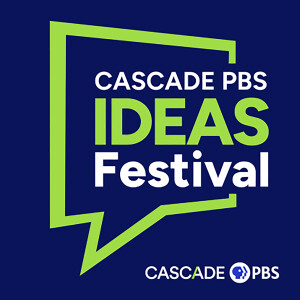
Wednesday Oct 23, 2024
“Text Me Back!” Prepares Us for the Election
Wednesday Oct 23, 2024
Wednesday Oct 23, 2024
Co-hosts Lindy West and Meagan Hatcher-Mays remind us to laugh in this bonus episode recorded live at the Seattle Public Library on October 15.
Lindy West and Meagan Hatcher-Mays join us again for another lively discussion on The Cascade PBS Ideas Festival podcast.
In a special bonus episode, Cascade PBS partnered with The Seattle Public Library Foundation to put on a live podcast taping of Text Me Back! featuring West and Hatcher-Mays, who were part of the Ideas Festival lineup earlier this year.
The conversation, moderated by Cascade PBS anchor Paris Jackson, took a lighthearted approach to the upcoming election and featured special guests Mariesa Bus, Brett Hamil and Naomi Ishisaka.
This conversation was recorded on Oct. 15, 2024.
---
Credits
Host: Paris Jackson
Producer: Isaac Kaplan-Woolner
Event producers: Jake Newman, Anne O'Dowd
---
If you would like to support Cascade PBS, go to cascadepbs.org/membership. In addition to supporting our events and daily journalism, members receive complete access to the on-demand programming of Cascade PBS.

Monday Jul 15, 2024
Race, Power and Palestine with Ta-Nehisi Coates
Monday Jul 15, 2024
Monday Jul 15, 2024
In a live taping of Slate’s A Word podcast, Jason Johnson talks with Coates about the resonance between racism in America and the crisis in Gaza.
On his podcast A Word, veteran political commentator Jason Johnson invites leaders, journalists and other change-makers to have productive and provocative conversations about race in politics and society.
As part of the Cascade PBS Ideas Festival in early May, Johnson sat down with bestselling author and journalist Ta-Nehisi Coates to discuss Coates’ perspectives on everything from the art of writing to the ongoing crisis in Israel and Palestine.
In this episode of the Cascade PBS Ideas Festival podcast, Johnson and Coates discuss the impact of AI on creators and how lived experience defines the act of writing. Coates also reflects on a life-changing visit to Israel and Palestine, connecting the experience of being Black in America and the history of Jim Crow segregation to the segregation and oppression experienced by Palestinians. The two discuss America’s role in the Israel-Hamas war as well as in World War II, and what impact current events and historical forces have on American voters and the 2024 election.
This conversation was recorded on May 4, 2024.
---
Credits
Host: Paris Jackson
Producer: Isaac Kaplan-Woolner
Event producers: Jake Newman, Anne O'Dowd
---
If you would like to support Cascade PBS, go to cascadepbs.org. In addition to supporting our events and our daily journalism, members receive complete access to the on-demand programming of Cascade PBS.

